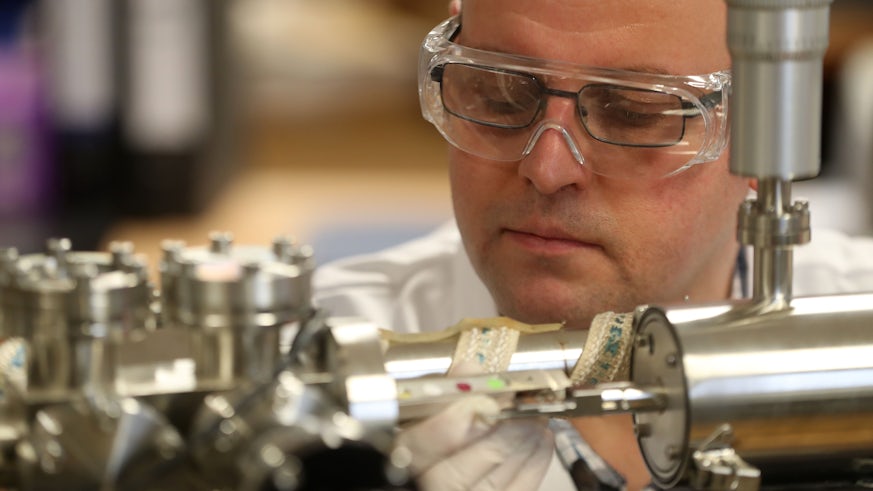A guiding light
14 March 2022

Dr David Morgan, Surface Analysis Manager in the School of Chemistry and the Cardiff Catalysis Institute has recently been awarded the Vickerman Award by the UK Surface Analysis Forum (UKSAF).
The Vickerman award, named after John Vickerman, a pioneer in surface and interface analysis, is awarded to researchers whose work is anticipated to have a major impact in the field of surface analysis and is a recognition of high-quality independent research at an early career stage.
One of the major research strengths of the School of Chemistry is the manipulation and control of the surfaces of materials to obtain new properties and new catalysts. Materials such as graphene promise to revolutionise the electronics and aviation industries. The development of gold catalysts for the production of the vinyl chloride monomer (VCM) and hydrogen peroxide have lead to cleaner more sustainable chemical processes. Such developments are made possible by analytical chemistry methods that provide atomic scale mapping of surfaces.
Dr Morgan has been at the forefront of surface analysis for over 20 years, running the School of Chemistry analytical services for surface science and catalysis. Dr Morgan also serves as technical manager of HarwellXPS – The EPSRC National Facility for X-ray Photoelectron Spectroscopy, which provides surface analysis to academia and industry.
Dr Morgan said: “I am delighted to be awarded the Vickerman prize. I am passionate about surface and interface analysis which is pivotal not only in catalysis but also wide-ranging sectors including the semiconductor industry, battery technology, pharmaceuticals and aerospace – all areas which influence our modern world.”
Cardiff has a rich history in surface and interfacial science and has access to a host of materials characterisation equipment, including a range of photoelectron spectrometers with gas treatment capabilities, which will accelerate a rich body of research in the new Translational Research Hub (TRH) and be augmented by two new characterisation techniques – PiFM and TERS , the first of their kind in the UK.